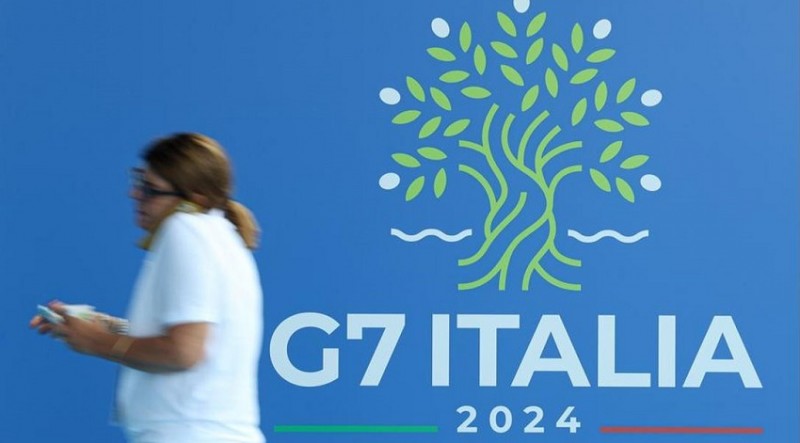
FASANO, Italy: The Group of Seven (G7) Summit concluded on Saturday with each member country holding divergent strategic considerations, leaving the future steps uncertain.
During the drafting of the joint communique issued on Friday afternoon, intense debates and disagreements arose among the G7 members. The communique stated that the group had agreed to utilize the interest from frozen Russian assets to finance approximately $50 billion in loans for Ukraine.
Russian President Vladimir Putin denounced this measure as "theft" and vowed retaliation. The details of the loan deal remain unclear and are expected to take months of negotiations to finalize.
The United States also signed a security agreement with Ukraine during the summit. However, analysts suggest the agreement could be rescinded before its terms expire. This could be pivotal as U.S. President Joe Biden faces a tough reelection battle later this year against former President Donald Trump, whose support for Ukraine is less robust than Biden's.
In addition to G7 members, leaders from over 10 other countries were invited to attend the summit, including emerging economies such as India, South Africa, and Brazil.
Alberto Bradanini, chairman of the Contemporary China Study Center in Italy, commented on the G7, noting that the United States perceives itself as in decline. "A minority of nations (G7) represents no more than 10 percent of the world population, with stagnant economies and lower growth rates than emerging countries. Their pathological claims are more evident than ever," said Bradanini.
Vito Petrocelli, president of the Italy BRICS Institute, criticized the decision to invite only a few BRICS countries to the G7 summit, calling it a mistake that signals Western disinterest in genuine collaboration with these nations.
"The G7 agenda is a series of impromptu measures, and each time their actions harm the very rules, such as free markets, they claim to promote," Petrocelli added.
The G7 summit coincided with the 2024 European Parliament Election, during which German Chancellor Olaf Scholz's Social Democratic Party suffered significant losses, and French President Emmanuel Macron faced enough setbacks to consider calling new legislative elections.
British Prime Minister Rishi Sunak announced a snap general election for July 4, as the Conservative Party seeks to extend its 14-year reign. Canada's Justin Trudeau, embroiled in scandals, is set to host next year's G7 summit amid a challenging electoral campaign. Meanwhile, in Japan, Prime Minister Fumio Kishida's approval ratings have plummeted to just 16 percent.
However, Italian Prime Minister Giorgia Meloni's arch-conservative Brothers of Italy party increased its vote share to 29 percent in the European parliamentary elections, bolstering her stature at home and abroad. Meloni proudly asserted that Italy "has the strongest government in the G7."
Oreste Massari, a political science professor at Rome's Sapienza University, attributed Meloni's rise to the broader surge of right-wing and nationalist parties across Europe and beyond. Meloni has prioritized issues such as migration and Africa, promoting the "Mattei Plan" to reshape Italy's strategy toward the African continent during her discussions with President Biden.
Disputes on AI and Abortion
The G7 communique mentioned plans to promote "safe, secure, and trustworthy AI" while committing to enhancing interoperability among AI governance approaches. The group acknowledged the impact of AI on military domains, emphasizing the need for responsible military use of AI.
However, the G7 countries have diverged on how to achieve these goals. European countries favor tighter regulations, while the United States leans toward a market-driven approach. Leaders deferred definitive decisions on an AI rulebook until their next summit in Canada next year.
Abortion emerged as a contentious issue among member states, with France and Canada advocating progressive stances, while Italy's conservative Meloni pushed for a more restrictive approach. Notably, this year's communique did not mention the word "abortion," in contrast to last year's commitment to ensuring safe and legal access to abortion.
Kamala Harris Announces 1.5 Billion Dollar US-Aid for Ukraine at Peace Summit
G7 Summit: PM Modi and Justin Trudeau Meet Amid Tensions Over Hardeep Singh Nijjar's Killing
G7 Summit: How Many Leaders Did PM Modi Meet and What Did They Discuss?